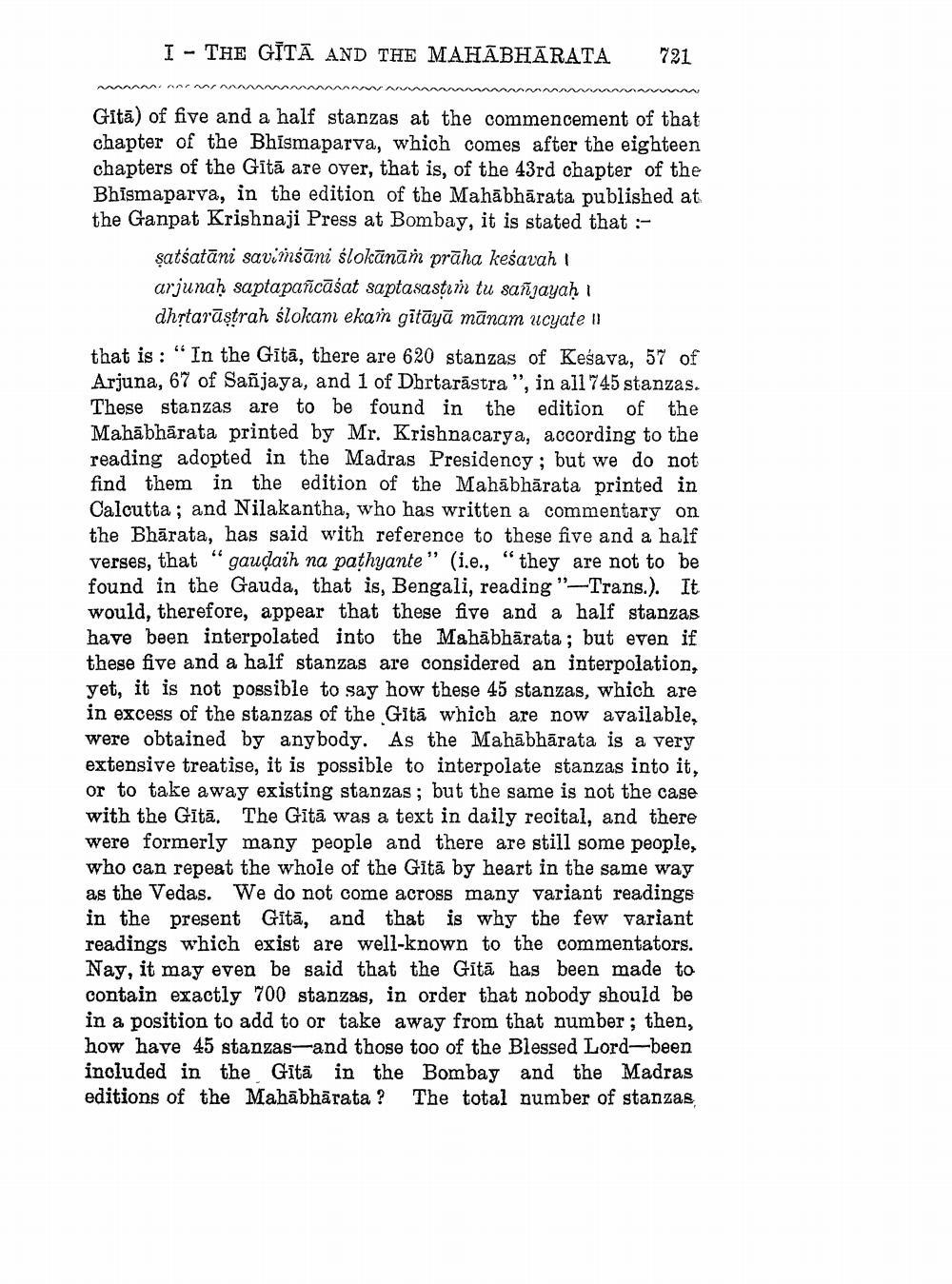________________
I - THE GĪTĀ AND THE MAHABHARATA 721 www.animaan Gitā) of five and a half stanzas at the commencement of that chapter of the Bhismaparva, which comes after the eighteen chapters of the Gitā are over, that is, of the 43rd chapter of the Bhismaparva, in the edition of the Mahābhārata published at the Ganpat Krishnaji Press at Bombay, it is stated that :
satsatāni savimśāni ślokānāṁ prāha keśavah ! arjunaḥ saptapascāśat saptasastım tu sanjayah 1
dhrtarāştrah ślokam ekaṁ gitāyā mānam ucyate 11 that is : "In the Gītā, there are 620 stanzas of Keśava, 57 of Arjuna, 67 of Sañjaya, and 1 of Dbrtarāstra", in all 745 stanzas. These stanzas are to be found in the edition of the Mahābhārata printed by Mr. Krishnacarya, according to the reading adopted in the Madras Presidency ; but we do not find them in the edition of the Mahābhārata printed in Calcutta ; and Nilakantha, who has written a commentary on the Bhārata, has said with reference to these five and a half verses, that "gaudaih na pathyante" (i.e., “they are not to be found in the Gauda, that is, Bengali, reading "-Trans.). It would, therefore, appear that these five and a half stanzas have been interpolated into the Mahābhārata; but even if these five and a half stanzas are considered an interpolation, yet, it is not possible to say how these 45 stanzas, which are in excess of the stanzas of the Gitā which are now available, were obtained by anybody. As the Mahābhārata is a very extensive treatise, it is possible to interpolate stanzas into it, or to take away existing stanzas; but the same is not the case with the Gītā. The Gītā was a text in daily recital, and there were formerly many people and there are still some people, who can repeat the whole of the Gitā by heart in the same way as the Vedas. We do not come across many variant readings in the present Gitā, and that is why the few variant readings which exist are well-known to the commentators. Nay, it may even be said that the Gitā has been made to contain exactly 700 stanzas, in order that nobody should be in a position to add to or take away from that number; then, how have 45 stanzas--and those too of the Blessed Lord-been included in the Gitä in the Bombay and the Madras editions of the Mahābhārata? The total number of stanzas,




